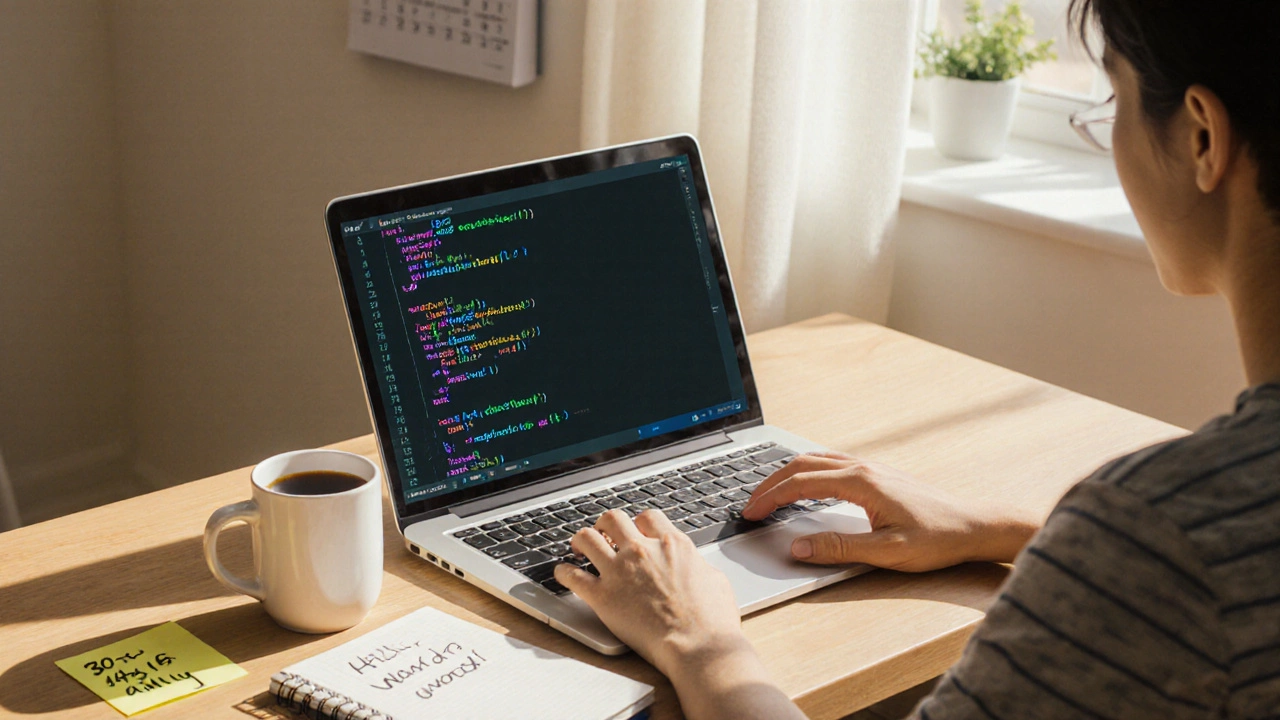Learn Programming – Simple Steps, Free Resources, and Real Tips for Beginners
Feeling curious about coding but not sure where to start? You’re not alone. Thousands of people begin their programming journey every day, and most of them feel the same mix of excitement and doubt. The good news is you don’t need a computer science degree or a fancy lab to begin. With the right plan and a handful of free tools, you can write your first line of code in just a few days.
Why Learn Programming Today?
Programming is more than just a job skill; it’s a way to solve problems quickly. Whether you want to build a simple website, automate a boring task, or understand how apps work, coding gives you control. Employers across India and the world value developers, and even basic coding knowledge can boost your resume. Plus, learning to code improves logical thinking – a skill that helps in any field.
Another reason to start now is the wealth of free resources. Platforms like YouTube, GitHub, and open‑source projects let you practice without spending a rupee. You can join online communities, ask questions, and see real‑world code examples. All you need is a computer and a few minutes a day.
Practical Steps to Start Coding
1. Pick a language that matches your goal. For web basics, try HTML, CSS, and JavaScript. If you’re interested in data or automation, Python is a solid choice. Want to build Android apps? Java or Kotlin works best. Choose one and stick with it for the first month.
2. Set up a simple workspace. Install a free code editor like VS Code. It works on Windows, macOS, and Linux and has extensions that help you write clean code. Follow a short tutorial to get the editor running – this takes less than ten minutes.
3. Follow a “build‑something” tutorial. Instead of reading theory forever, pick a small project: a personal webpage, a to‑do list, or a calculator. Step‑by‑step guides on YouTube or free coding sites will show you each line of code and why it matters. Finish the project, then try tweaking it – change colors, add a button, or store data.
4. Practice daily, even for 15 minutes. Consistency beats marathon sessions. Use coding challenge sites like HackerRank or CodeChef to solve easy problems. Over time you’ll notice patterns and start writing code without looking up every function.
5. Join a community. Forums such as Stack Overflow, Reddit’s r/learnprogramming, or local Discord groups let you ask questions and see how others solve issues. Seeing real people help each other keeps motivation high.
Remember, the first few weeks feel tough because everything is new. That’s normal. Celebrate tiny wins – a script that runs, a webpage that loads, or a bug you fixed. Those moments build confidence and push you forward.
When you feel ready, explore deeper topics like version control with Git, basic algorithms, or building simple APIs. Each new skill adds to your toolbox and opens more possibilities.
Bottom line: learning programming is a step‑by‑step adventure. Pick a language, set up a workspace, build a small project, practice daily, and connect with others. Follow this path, and you’ll see real progress without feeling overwhelmed.
Oct
25

- by Dhruv Ainsley
- 0 Comments
Self‑Taught Coding: How to Teach Yourself Programming
Learn how to teach yourself coding with practical steps, free resources, community tips, and a clear roadmap for building real projects and landing a job.
Nov
22

- by Dhruv Ainsley
- 0 Comments
How Quickly Can You Master Coding Skills?
Learning to code can be swift and efficient if approached with the right strategies and mindset. The pace at which one can acquire coding skills depends on numerous factors including dedication, resources, and previous experience. With modern tools and resources, anyone can embark on an exciting journey towards becoming proficient in coding. This article explores various tips and the typical timeline to guide beginners on their path to coding mastery.